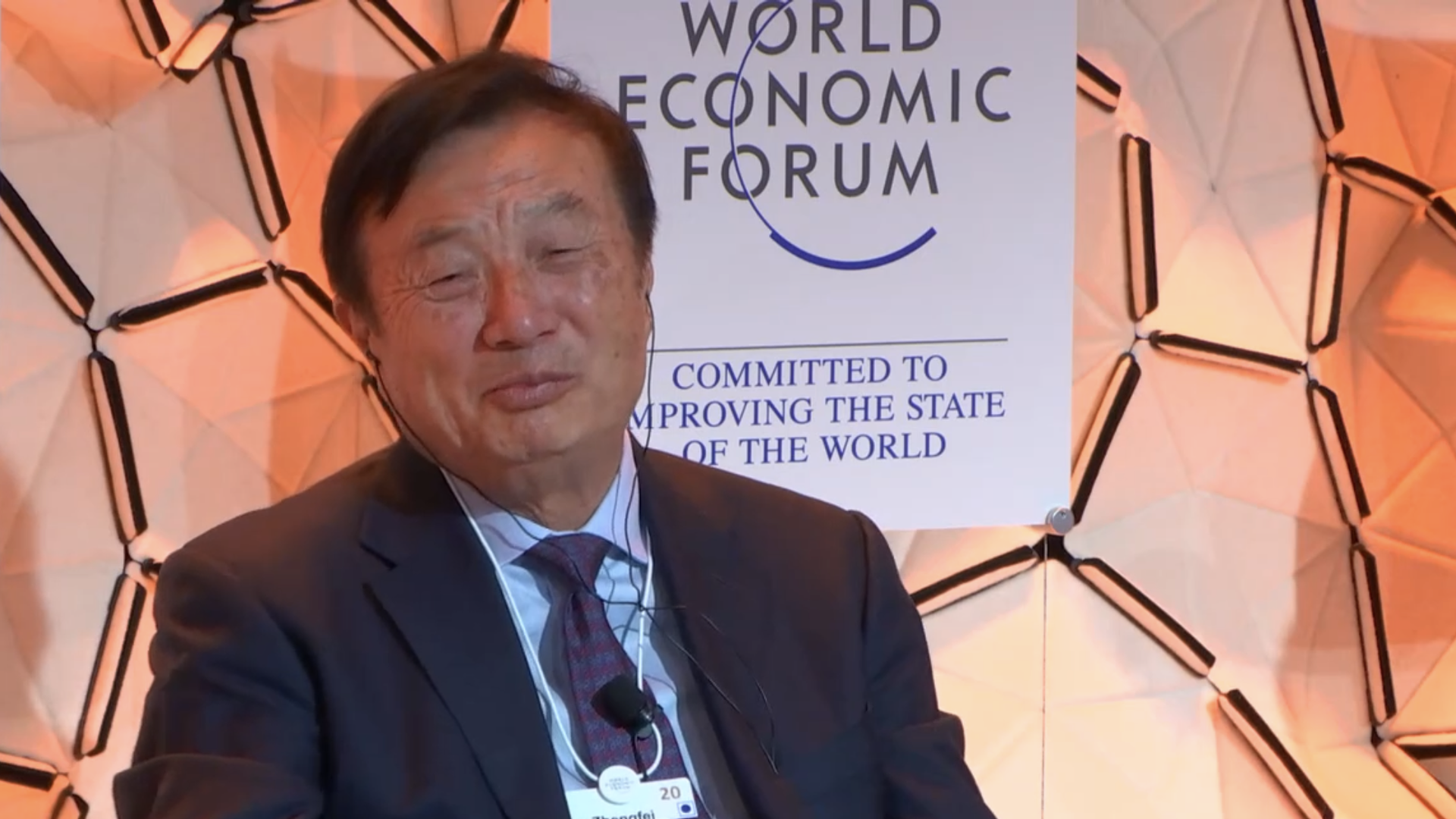Huawei CEO at Davos: We're better prepared for U.S. attacks
Add Axios as your preferred source to
see more of our stories on Google.

Huawei CEO Ren Zhengfei. Screenshot by Axios
Huawei chief Ren Zhengfei said Tuesday that his company is prepared for any further U.S. "attacks," but he believes the world can avoid splitting into two separate technology systems.
Why it matters: The U.S. and China are locked in a fierce battle, with trade restrictions already limiting Huawei's ability to sell phones around the world.
- "We are more confident we can survive even further attacks," Ren said, appearing at the World Economic Forum Annual Meeting in Davos, Switzerland.
The backdrop: Last year, the U.S. imposed a variety of restrictions that further limited Huawei's ability to do business in the U.S. as well as hampering its ability globally by limiting access to U.S. chips and software. It is also pressuring allies not to use Huawei's networking technology for their 5G systems.
- Ren expressed optimism the tensions won't lead to a complete bifurcation of Western and Chinese technology. "Whether world will be split in two systems, I don’t think so," he said. "Science is about truth; there is only one truth. It is unique."
Meanwhile: Israeli philosopher Yuval Noah Harari, who joined the Huawei chief on stage, talked about the existential threat posed when any tech company, be it Huawei or Facebook, can know human desires better than people themselves.
- Ren replied: "We are not sure if that can become reality. We do not rule out this possibility."
The panel included a lot of harkening back to the Cold War and the race to build the atom bomb.
- The key difference, Harari noted, is that it was largely clear that using the technology behind the atom bomb was bad. With AI, countries may believe they are best served by actively deploying such systems.
- Harari also pointed out that the U.S.-China tech Cold War is very close to a real arms race — the development of lethal autonomous weapons. And while both sides likely know the danger, the distrust could prompt such systems to be built.
Yes, but: Harari ended on a hopeful note, pointing out that in theory surveillance technology could be used to keep tabs on big business and government, and antivirus software could in future detect efforts to manipulate your mind.
